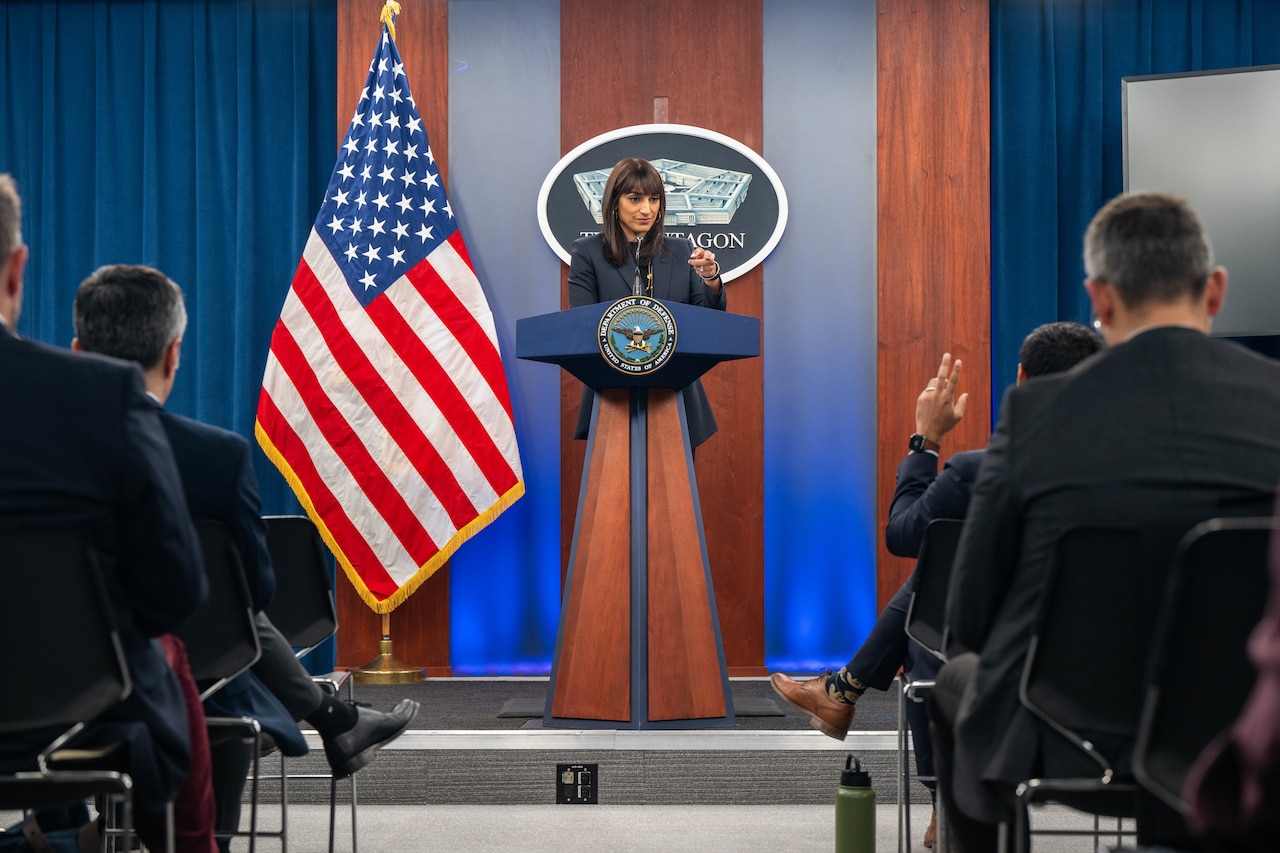SAN DIEGO—The Navy has a new sea base that can handle anything from minesweeping to V-22 operations to unmanned systems—if ever called to do so.
USS John L. Canley, named for a Marine gunnery sergeant who received the medal of honor during the Battle of Hue in Vietnam, entered active service Saturday. Canley was the first living Black Marine to receive the highest military honor.
“We’re the third largest flight deck in the U.S. Navy at 52,500 square feet,” with four helicopter landing spots for simultaneous landings, Capt. Thomas Mays, commanding officer for the vessel and both crews, told reporters ahead of the ceremony. There’s also a hangar on board that can hold two V-22 Ospreys, two MH-53E Sea Dragons, or four SH-60 Sea Hawks.
The General Dynamics NASSCO-built vessel is the sixth iteration of the expeditionary sea base mobile platform. It’s also designed to re-arm attack helicopters, a first for the ESB class, he said.
The warship has a hybrid crew, with 49 civilian mariners who handle navigation engineering, seamanship, and deck operations, and up to 145 military personnel for forward operations, communications, security, and aviation. There’s also room for 200 embarked troops, such as Marines, special forces, or specialized detachments.
“The ship is twice as heavy as an LHD [or landing helicopter dock],” Mays said. It’s almost as large as an aircraft carrier, weighing in at 90,000 to 100,000 tons, with 1.5 million gallons of fuel.
Canley is meant to be a secondary platform to handle missions that LHDs can’t necessarily do, including mine hunting and special forces operations.
“One of our primary missions is Marine Corps aviation minesweeping. So we can take the MH-53E helicopters or other helicopters of that class, use mine sleds we’ll put down here on the mission deck, the lower mission deck. We’ll drop those in the water, the helicopters will then drag them along, and then sweep mines to clear an area for an assault,” Mays said.
When asked if the ship would be able to support drones, like the ones the Air Force has used in autonomous cargo flight tests, Mays said it’s not a program of record—but it’s possible.
“We have the room. If we do the material study and make sure that we can support it, the architecture then that could be in the future,” Mays said.
The ship will have an information warfare officer on board, as well as IT and cyber specialists.
“If we have any information warfare needs beyond what any standard Navy crew has, we’ll bring on to detachment just for that role. In fact, that’s what we’re designed to do,” Mays said of the Canley’s tailorable design.
The massive vessel has almost everything a crew could need, from medical to lounge areas, gym equipment, and a barbershop called Courage Cuts. The only thing missing is Wi-Fi.
“We are working on that,” Mays said. “Some ships do have Wi-Fi capability. But we have to offset the ease and convenience of that with the security aspect of it. So it depends on how many spaces are gonna have secure networks versus unsecured networks, because Wi-Fi could be a complicating factor. But we do have a robust network that the folks can tie into and with no problems whatsoever.”
USS Canley will be ready for tasking in July and expects to go to 7th Fleet in the Western Pacific then, Mays said.





















Discussion about this post